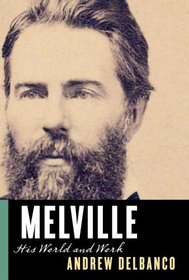Search -
Melville : His World and Work
Melville His World and Work
Author:
With Moby-Dick Herman Melville set the standard for the Great American Novel, and with “Bartleby, the Scrivener,” Benito Cereno, and Billy Budd he completed perhaps the greatest oeuvre of any of our writers. Now Andrew Delbanco, hailed by Time as “America’s best social critic,” use... more »
Author:
With Moby-Dick Herman Melville set the standard for the Great American Novel, and with “Bartleby, the Scrivener,” Benito Cereno, and Billy Budd he completed perhaps the greatest oeuvre of any of our writers. Now Andrew Delbanco, hailed by Time as “America’s best social critic,” use... more »
ISBN-13: 9780375403149
ISBN-10: 0375403140
Publication Date: 9/20/2005
Pages: 448
Rating: ?
ISBN-10: 0375403140
Publication Date: 9/20/2005
Pages: 448
Rating: ?
0 stars, based on 0 rating
Publisher: Knopf
Book Type: Hardcover
Other Versions: Paperback
Members Wishing: 2
Reviews: Amazon | Write a Review
Book Type: Hardcover
Other Versions: Paperback
Members Wishing: 2
Reviews: Amazon | Write a Review
Genres:
- Biographies & Memoirs >> Arts & Literature >> Authors
- Biographies & Memoirs >> General
- Literature & Fiction >> History & Criticism >> Criticism & Theory >> General




